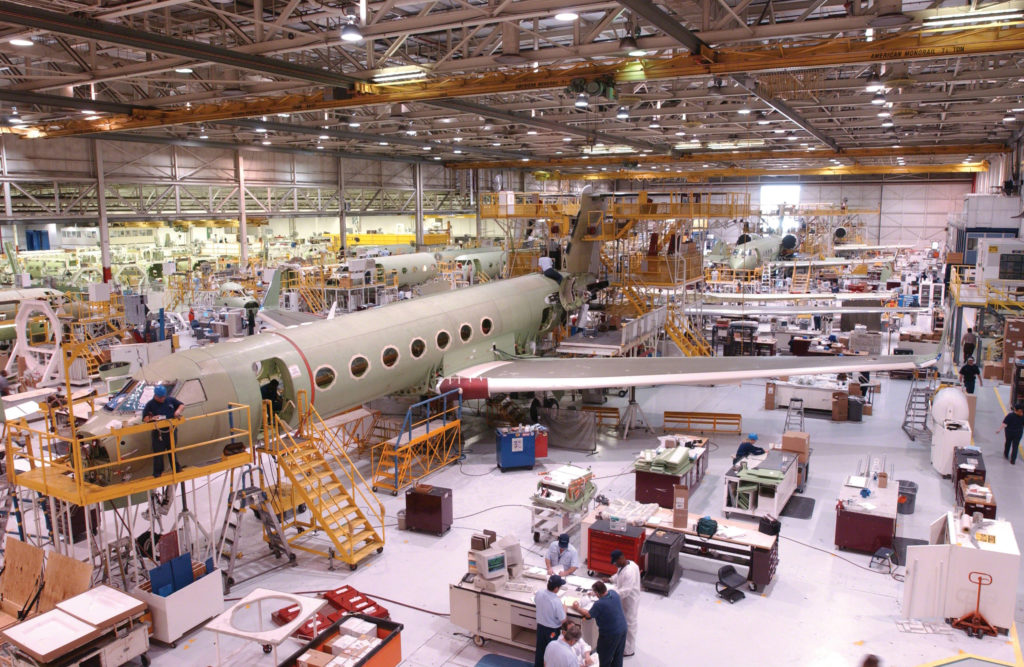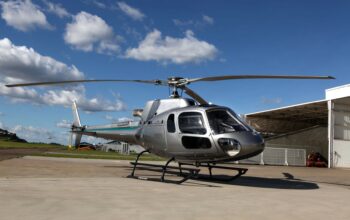Estimated reading time 7 minutes, 35 seconds.
The clock is ticking towards the targeted July 1, 2018, deadline for the legalization of recreational marijuana in Canada.

With less than three months to go, now is the time for employers to cut through the haze of uncertainty surrounding weed at work.
In response to member inquiries, the Aerospace Industries Association of Canada (AIAC) recently ran a webinar that presented some guidelines on the legalities surrounding employees who use recreational marijuana.
Hosted by Daryl Cukierman and Auriol Marasco, both partners at Toronto law firm Blake, Cassels & Graydon LLP (Blakes), the webinar delivered important information to aerospace executives who had questions about how to structure effective policies and procedures to manage marijuana in the workplace.
By its very nature, aerospace involves fine, exacting work. There is no room for impairment of any kind, and the lawyers presented a comparison to alcohol in the workplace.
“We feel there is a good analogy to be drawn between alcohol and recreational marijuana,” said Cukierman, who is in the employment and labour group at Blakes. “If you look at alcohol, it is currently legal, but that doesn’t mean you can show up to work intoxicated. Employees are still required to show up fit for work and capable of performing their duties in a safe and effective manner.”
The definition of “fit for work” varies between occupations, but it’s usually tied to being able to perform the job in a safe, competent and effective manner. Employers are responsible for ensuring that workplace policies clearly spell out expectations in this area.
And while some executives may be worried about the infiltration of recreational marijuana in the workplace, Cukierman said the legislation does not require employers to permit recreational cannabis use at work. In fact, it’s quite the opposite.

“Each of the provinces is putting out its own legislation dealing with possession and consumption rules,” he noted. “In Ontario, we are seeing express language generally prohibiting recreational cannabis use outside of private dwellings. The bottom line from our perspective is that employers will continue to have the ability to prohibit recreational cannabis in the workplace.”
But the legalization of recreational marijuana may influence employees’ perceptions about what constitutes acceptable behaviour.
That’s why companies need to get appropriate policies in place now, and communicate their expectations to employees before recreational cannabis is legalized.
Clarity is Key
“The primary point I emphasize is to get your policies in order. Be clear on employer expectations, specifically expectations between cannabis use and the workplace,” advised Cukierman.
“Those policies need to be clearly communicated to employees. Updates to the language may be required, including health and safety policies related to smoking in the workplace. I encourage employers to review and update those policies as necessary to clarify what is and is not acceptable workplace behaviour.”
One thing to look for is language which prohibits illegal drugs in the workplace.
“Soon enough, recreational marijuana will be legal. So we are encouraging employers to identify loopholes like this and close those up. In other words, employers may wish to emphasize in their policies that regardless of legality, marijuana is still prohibited in the workplace.”
He said while some policy frameworks may need only minor tweaking, other organizations can take this opportunity to develop plain language policies and share them with staff.
“In our view, this presents the perfect time to remind employees about expectations in the workplace.”
Employers should also be aware that an addiction to recreational cannabis use would qualify as a disability under human rights legislation. At that point, said Cukierman, employers would have a duty to accommodate to the point of undue hardship.
“Employees may be entitled to accommodation, but that doesn’t mean employers must allow employees to show up for work impaired. It may require giving them time off to address their addiction.
“When we talk about undue hardship, it is a standard that has been established through case law and human rights legislation. It is a high standard–employers must take notable steps to accommodate, but cost and health and safety requirements are two points that can generally be considered in the undue hardship analysis.”
Ensuring a Safe Workplace
Cukierman said he expects to see increased employer interest in random drug and alcohol testing “if the new legislation leads to increased employee use of cannabis, particularly in safety sensitive industries.”
While random testing does exist in Canada, it is a complicated topic. Time will tell how case law reacts to legalized recreational cannabis and what precedents are set.
Auriol Marasco, a partner in Blakes’ aviation and aerospace group, said the impending legislation doesn’t require anything specific from an industry perspective.

“Transport Canada has always taken the stance that they’re all about safety. So, regardless if something is illegal or not, if it jeopardizes the safety of passengers, the public or aviation as a whole, Transport Canada is against it. We don’t expect to see any changes,” she said.
She recommended that employers stay in touch with their regulatory contacts as the legislation comes into force. “If Transport Canada is going to change anything, it will be done with industry input.”
Jim Quick, president and CEO of AIAC, said the webinar made several important points.
“Some people were under the assumption that because it’s (going to be) legal, you will be able to use it in the workplace,” he said. “But there is zero tolerance in the aerospace industry (or any industry) for working while impaired.
“As an employer, you have an obligation to ensure a safe workplace. We cannot allow people to endanger themselves or others due to alcohol or drug use. Workplace policies must protect the safety and security of employees.”
Cukierman said it is possible that the government may not be ready to legalize recreational cannabis on July 1 as planned, but it will almost certainly happen by this fall.








